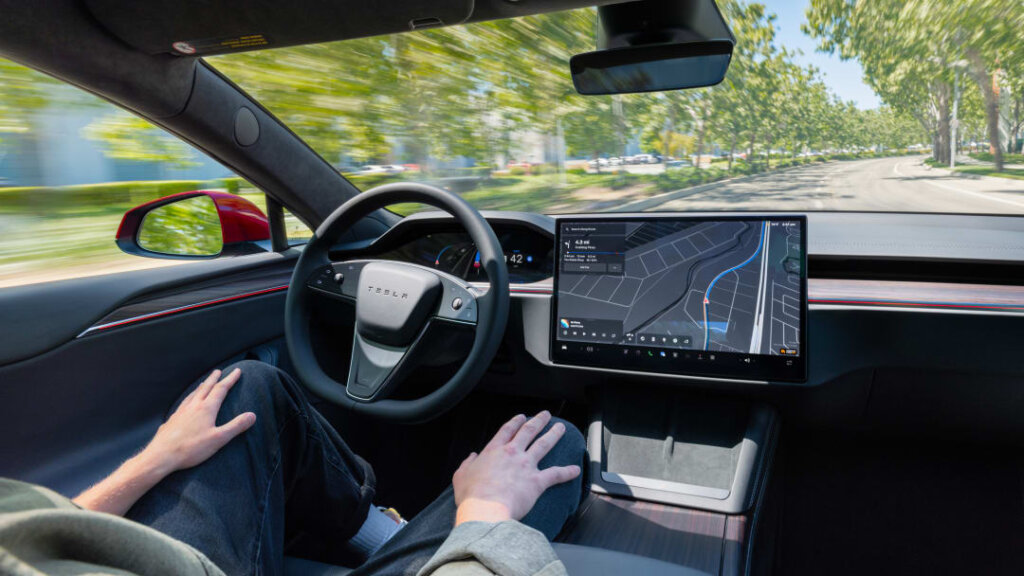Musk Says Tesla FSD Will Feel ‘Almost Sentient’ by 14.2—As Legal Battles Loom
Tesla CEO Elon Musk has announced that an updated version of the company’s “Full Self-Driving” (FSD) driver-assistance system, FSD version 14.0, is set for an “early wide release next week.” This will be followed by additional 14.1 and 14.2 updates approximately two weeks later. Musk provocatively claimed on X (formerly Twitter) that “the car will feel almost like it is [a] sentient being by 14.2,” a statement that comes amidst increasing scrutiny and legal battles surrounding Tesla’s self-driving capabilities and marketing claims.
Staged Release for an “Almost Sentient” Experience
The rollout of FSD version 14 is planned in three stages, with 14.0 leading the charge, followed by 14.1 and 14.2. This phased approach suggests a strategy of gradually deploying the software, likely beginning with Tesla insiders and influencers before a broader release with version 14.2. This allows Tesla to address any bugs or issues identified by its dedicated user base, who are generally more tolerant of early-stage software quirks.
While Musk did not elaborate on specific new features for each release, his bold claim about the system’s “sentient” feel by 14.2 continues to push the boundaries of public perception regarding autonomous driving.
New Features and Potential Driver Monitoring Changes
According to Not A Tesla App, the term “early wide release” for FSD version 14.0 indicates that the software might not be immediately available to all customers, mirroring previous releases (versions 12 and 13) which were initially limited to certain early-access groups before wider deployment in their .2 iterations.
Previous comments by Musk have hinted at potential capabilities in these updates, including:
- A new AI model.
- Reductions in video compression to enhance the car’s image processing from onboard cameras.
- Potential reductions in driver monitoring. This last point is particularly noteworthy, as Tesla recently loosened the rules for inattentive drivers that typically lead to FSD access suspension. Whether this move is a positive step for safety remains a subject of debate.
Backlash and Legal Pressure Against Self-Driving Hype
Musk has consistently promoted FSD and its companion system, Autopilot, as foundational technologies for achieving full autonomous driving. However, both systems currently fall short of true Level 5 autonomy, requiring active driver supervision. This gap between marketing claims and real-world capabilities has led to significant backlash and legal challenges for Tesla.
The automaker is currently facing:
- A class-action lawsuit over its past self-driving claims.
- A federal jury ruling earlier this year that found Tesla partly liable for a fatal crash involving its Autopilot system.
- Growing scrutiny, as evidenced by U.S. Senators demanding an FSD investigation over rail crossing safety risks.
As Tesla pushes the technological envelope with FSD version 14.2, it simultaneously navigates a complex landscape of legal scrutiny and public concern, where the promise of “sentient” driving clashes with the realities of regulatory oversight and real-world safety incidents.
Also Read – Toyota Collaborates on Sports Cars Like Supra & GR86 (It’s Not Because They Can’t Go Solo)




Pingback: Ford CEO Jim Farley Rejects CarPlay Ultra, Pushes For In-Car AI Assistants - Mechhelp